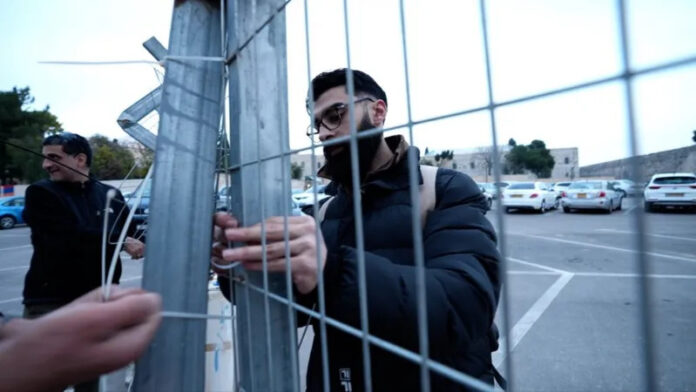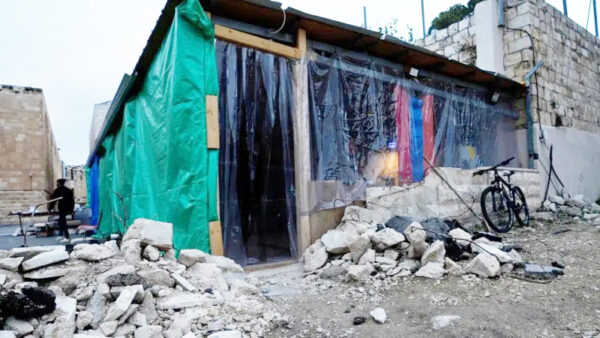By Yolande Knell
JERUSALEM (BBC News) — While Christmas may be a distant memory for many, the Armenians of Jerusalem only just held their annual celebration on January 19.
This year, the holiday was overshadowed by the war in Gaza and the ongoing threat to the survival of the community from a deeply controversial real estate deal.
Many spent the day in an unconventional fashion, joining a sit-in at a tent in their church car park, which is part of a large plot at risk in the Armenian Quarter of the walled Old City.
“This illegal, treacherous land deal actually brought us all together,” says Setrag Balian, a ceramicist turned activist.
Armenians date their presence in the holy city back to the 4th Century. Many of the 2,000-strong community live inside the large, cobble-stoned compound of St James Convent.










